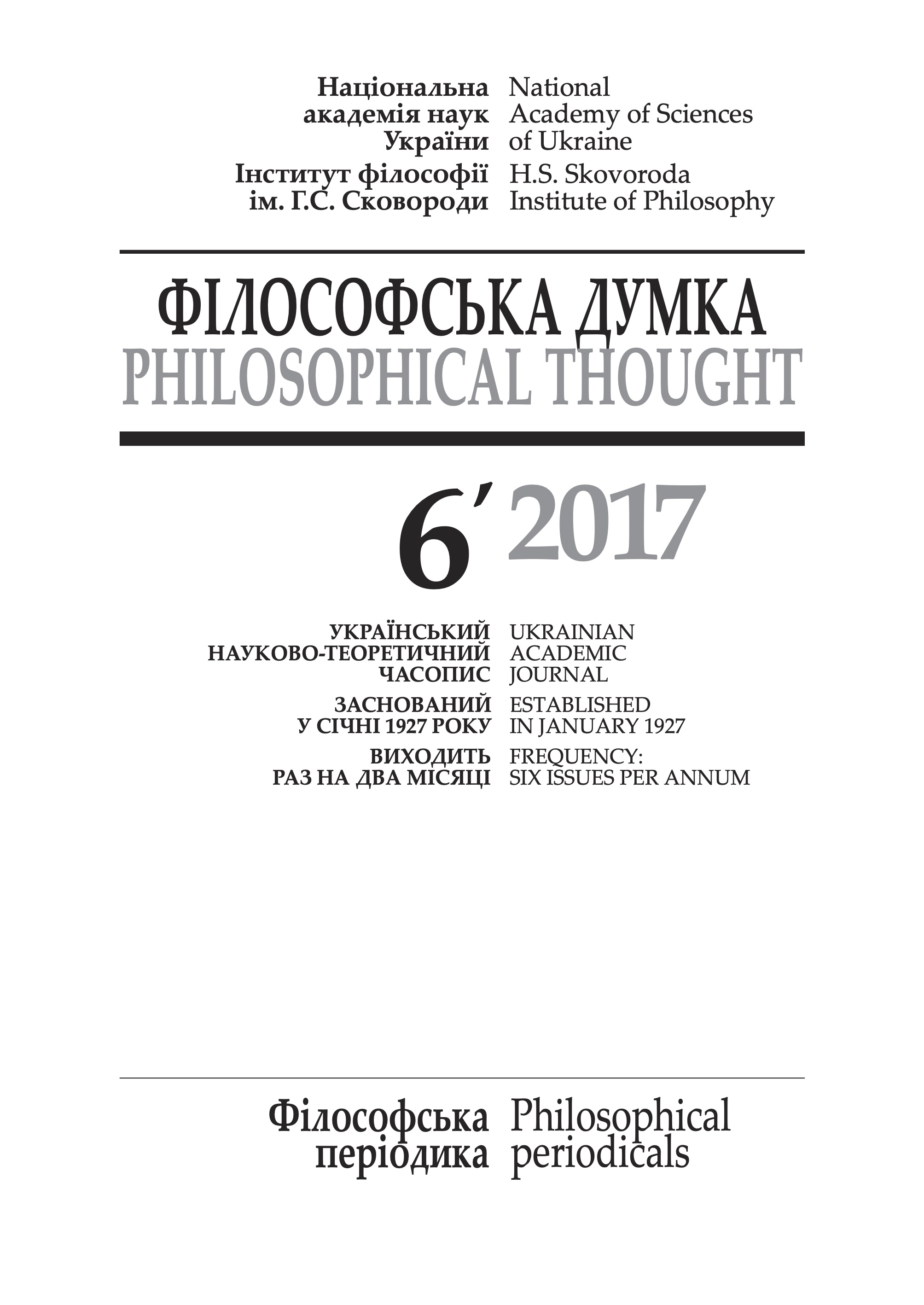The Hierarchy of Realities in the Ontology of Conflict (to the philosophical analysis of Russian-Ukrainian conflict)
Keywords:
consensus, dialogue, conflict, civil society, the paradox of intersubjectivity, linguistic solipsism, the code of powerAbstract
The paper presents an attempt to outline the methodological basis for current Russian-Ukrainian conflict analysis. The conflict is been analyzed within the frame of the contemporary philosophy which is based on phenomenological method of Edmund Husserl from one side and the perspective of linguistic turn initiated by Ludwig Wittgenstein from other side. Such approach presupposes that the international conflict is treated as a specific communicative situation, when social consensus and dissensus are the basic constituting elements of the process. In this context conflict could be rewritten in terms of contemporary philosophy as a bilateral process of creating discourse by society and constituting society by discourse.
The analysis of Russian-Ukrainian conflict in the context of contemporary philosophy is highly fruitful also for philosophy itself as soon as such a «clash» with reality is a test for its epistemological potential. As it was shown, the present analysis let us conclude the insufficiency of intersubjectivity paradigm and limitations of the concept of language as an ontological ground which can explain the dialectics of consensus and dissensus within the structure of international conflict. It is suggested that the problem of insufficiency of intersubjectivity paradigm could be solved by means of extralinguistic (i.e. laying beyond the border of the language) elements only, in particular, by means of the concept of power as a metalanguage which complete the concept of intersubjectivity and provides the sufficient ground for the explanation of international conflict architectonic.
References
Bard, A. (2012). The Internet Revolution. The lecture on the conference Berlin’2012 NEXT; Retrieved from: https://www.youtube.com/watch?v=cGGBWssRAhI
Bourdieux, P. (2007). Sociology of the social space. [In Russian]. St. Petersburg: Aleteya, pp. 87-96.
Brzezinski, Z. (1997). The Grand Chessboard. NewYork: Basic Books, 224 p.
Luhmann, N. (2001). Power. [In Russian]. Мoscow: Praxis, 256 p.
Habermas, J. (1987). The Philosophical Discourse of Modernity. Twelve Lectures. MIT Press, 430 p.
Huntington, S. (1996). The Clash of Civilizations. NewYork: Simon&Schuster, 246 p.
Taleb, N. (2007). The Black Swan: The Impact of the Highly Improbable. New York: Random House, 400 p.
Wittgenstein, L. (1922). Tractatus Logico-philosophicus. Retrieved from http://people.umass.edu/klement/tlp/
Downloads
-
PDF
Downloads: 183
Published
How to Cite
Issue
Section
License
Authors who publish with this journal agree to the following terms:
- Authors retain copyright and grant the journal right of first publication.
- Authors are able to enter into separate, additional contractual arrangements for the non-exclusive distribution of the journal's published version of the work (e.g., post it to an institutional repository or publish it in a book), with an acknowledgement of its initial publication in this journal.
- Authors are permitted and encouraged to post their work online (e.g., in institutional repositories or on their website) prior to and during the submission process, as it can lead to productive exchanges, as well as earlier and greater citation of published work (See The Effect of Open Access).


